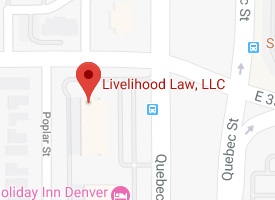
Wages, tips, and overtime pay are common employment issues for hotel and resort workers. While businesses in the hospitality industry must comply with state and federal laws on minimum wage and overtime pay, different wages may apply to different hotel positions, and questions often arise regarding which employees are legally entitled to receive overtime pay. Because some hospitality workers live on-site or are regularly on call, calculating the number of hours worked each week can also be challenging. Tip pooling, which is a very common practice among hotel and resort workers, may or may not violate wage laws.
Hourly Wages and Overtime Pay for Hospitality Workers
The Fair Labor Standards Act (FLSA) sets the minimum wage, overtime pay, and youth employment standard for employees in the private sector as well as workers in federal, state, and local governments. Under the FLSA, a “non exempt” employee is a worker who earns less than $684 per week; non exempt workers must be paid overtime. Covered “non exempt” workers are entitled to a federal minimum wage of not less than $7.25 per hour.
In Colorado, for 2023, the minimum wage is $13.65 per hour and $10.62 per hour for tipped employees. Overtime pay must be paid at a rate that is not less than one and one-half times the regular rate of pay. In Colorado, workers are required to receive overtime pay for any work that exceeds the following: forty hours in one workweek; twelve hours per work day; or twelve consecutive hours of work.
Tipped Workers in the Hospitality Industry: Know Your Rights With Tip Pooling
Tipped employees are those workers who receive more than $30 per month in tips, and their regular pay (including tips) must be at least equal to the minimum wage. Tip pooling, in which employers encourage or require that a portion of their employees’ tips be redirected to other tipped employees, is common among hospitality workers. But only employees who perform important customer service functions are eligible to participate in tip pooling.
If a tipped employee is participating in a valid tip pool, employers may take a tip credit against that employee’s minimum wage. To do so, the employer must:
- notify each employee of their required tip pool contribution
- only take a tip credit for the actual amount that the employee receives
- not retain any of an employee’s tips for another purpose other than the tip credit
If an employer takes an employee’s tip credit but fails to give proper notice to an employee or requires that tipped employees share their tips with non-tipped employees, then the employer may be in violation of minimum wage laws.
Something else for hospitality workers to be mindful of is uniform expenses. Many hospitality workers wear uniforms on the job, but an employer may not require that an employee pays for the uniform if those expenses bring the employee’s wages below the federal minimum wage level. These types of deductions are generally not allowed from employees earning a sub-minimum direct wage.


